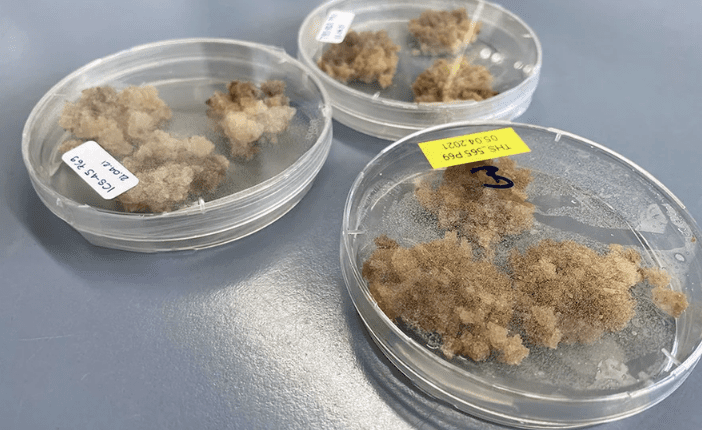Scientists at a Swiss technology institute Zurich University of Applied Sciences (ZHAW) have become the first to have successfully developed lab-grown chocolate.
The team made up of biotechnologists and food technologists was led by Professor Regine Eibl, who is the head of the institute’s Cell Culture Technology department.
According to Prof. Eibl, the team, whose pre-occupation is growing cell cultures for the pharmaceutical industry, did not set out to manufacture chocolate in the laboratory.
“The idea came from a colleague of mine, Tilo Hühn…He asked me if we could try to extract plant-based cell cultures from cocoa beans. We wanted to see if these cell cultures would produce polyphenols, which happen to be very important for the perception and sensory effects of chocolate,” she recalls.
The process involved cleaning the surface of the cocoa fruit and then extracting the cocoa beans under sterile conditions.
Afterwards, the beans were quartered using a scalpel and incubated on a culture medium at 29°C in complete darkness.
A Swissinfo.ch report explained that a kind of rough scab known as callus grew on the cut surfaces about three weeks later, and which could be reproduced easily.

“The aim is to produce large quantities from which we can work. For industrial-scale production, we would need to get cultures into a bio-reactor which could ideally hold several cubic metres,” said Yannick Senn, a team member.
The biomass from the culture is harvested, dried and later roasted, during which step it acquires some more colour and aroma.
“Then we mix in cocoa butter, sugar and lecithin. And the result is a 70% dark chocolate,” Senn noted.
The novel lab-grown chocolate is already reported to have passed the taste test.
“In the mouth, lab-grown chocolate feels just like traditional chocolate – which we brought along for comparison. The big difference lies in its rather fruity taste, which is immediately apparent. Flavours in conventional chocolate take more time to unfold,” Swissinfo.ch attributed to a taste report.
“Chocolate consumption is increasing. The world’s population is growing too, but land is becoming scarce. So this is an alternative whereby people can still enjoy chocolate a hundred years from now,” Prof. Eibl stated.
Reports are rife about lab-grown chocolate being the future of sustainable chocolate.
The Hong Kong-based Green Queen environment-centric blog said the innovation “could just be the answer to getting our sweet fix ethically and sustainably,” while The Times of UK said it “promises a guilt-free treat.”
A hundred grammes of lab-grown chocolate is estimated to cost around $22 as against $2.90 for traditional organic chocolate costs, according to Hühn, adding that, larger scale production will bring the price down.
He however assured that lab-grown food will not become an alternative to conventional agriculture.
“We will not be making traditional production of cocoa beans obsolete, nor would we want to,” Hühn insisted.
- Illegal Mining Threatening Ghana’s $230M Cocoa Rehabilitation - April 10, 2024
- Ghana Raises Cocoa Farmgate Price by 58.26% to GHC2,070 per bag - April 5, 2024
- New Standard for Measuring Cocoa Household Income Launched - April 5, 2024
